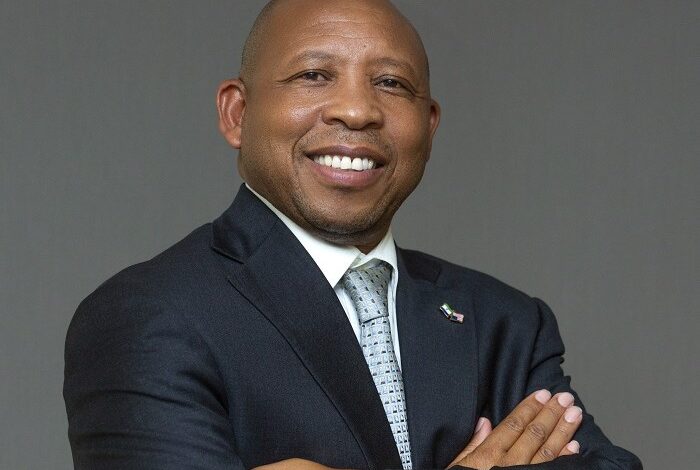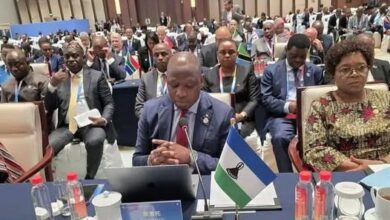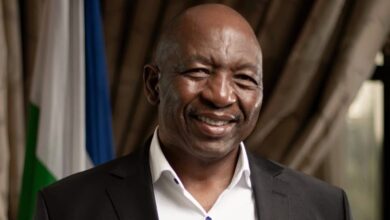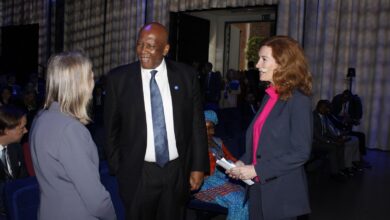Empowering Lesotho’s Youth: A Call to Confront Foreign Aid Dependency and Economic Challenges

Lesotho’s youth have been urged to confront the dangers of foreign aid dependency and address the deeper economic challenges that threaten the country’s future. This call is at the heart of a new campaign, Towards a Self-Sufficient Future, which aims to empower the youth to take ownership of the nation’s economic direction.
During an economic dialogue held in Maseru this week, former Prime Minister Moeketsi Majoro addressed the need for young people to critically examine the implications of continued reliance on foreign aid. He emphasized that without active participation from the youth, the future of Lesotho will be shaped by external forces rather than the aspirations of its own citizens.
“It’s not just about whether aid is sustainable,” Majoro said. “There are strings attached to aid—conditions that dictate what Basotho can and cannot do. Now that aid is diminishing, the government must plan to function independently.” His message to the youth was clear: they are facing challenges that go beyond the loss of foreign aid. Internal economic issues must also be addressed for the nation to thrive.
The Towards a Self-Sufficient Future campaign seeks to provide a platform for young people to voice their ideas, mobilize collective action, and influence national policy. Majoro’s call to envision a Lesotho without foreign aid resonated throughout the dialogue. However, he emphasized that this vision must be one that is actively chosen by the youth, not imposed upon them by external forces or future generations.
The Dependency Dilemma: A Deeper Look
Lesotho, like many developing nations, has historically relied on foreign aid to bridge financial gaps. While foreign aid may temporarily address development deficits, Majoro pointed out that it has not led to lasting self-sufficiency. “Developing countries lack sufficient savings to bridge their development deficits, which are often addressed through external financing,” he noted. However, he also highlighted that these gaps have never truly been closed.
This dependency on foreign aid has had significant consequences. According to Majoro, Africa needs around M100 billion in infrastructure investment annually, but it currently receives only M20 billion. With aid diminishing, the youth must be prepared to rethink the country’s economic direction, focusing on sustainable, locally driven solutions.
Economic Theories and the Global Dependency Model
Economist Retṧelisitsoe Nko further delved into the broader context of global economic dependency. He explained that foreign aid is part of a global system that reinforces the dominance of wealthy nations over poorer ones, thus perpetuating what he termed “the dependency pandemic.”
Nko outlined three major theoretical models of dependency: the neo-colonial model, the false paradigm model, and the dual dependency model. He warned that long-term reliance on foreign aid undermines domestic institutions, weakens national ownership of development, and disrupts long-term planning. He explained how aid dependency can lead to revenue instability, fragmented budgets, and hinder genuine economic reforms by fostering a habit of dependency.
“Aid dependence can reduce domestic tax collection efforts and erode accountability,” Nko said. “It also delays necessary economic reforms, as donors often impose their own priorities rather than respecting local needs.”
A Youth-Led Vision for Lesotho’s Future
Kananelo Boloetsi, a youth leader and organizer of the economic dialogue, echoed the frustrations of many young Basotho. “No one is proud that our country survives on handouts—least of all the youth. But we have a chance to change that,” Boloetsi said. He believes that this dialogue is the beginning of a long-term process of engaging young people in discussions about economic independence, resource management, and policy reform.
The Towards a Self-Sufficient Future campaign will continue with district-wide dialogues to engage young people across Lesotho. These conversations will culminate in the creation of the Independence Charter, a youth-led manifesto that outlines a clear vision for economic independence, strategic objectives, and actionable policies. Boloetsi emphasized that the Charter will serve as a political tool, guiding young voters in the upcoming elections and encouraging them to support parties that commit to its principles.
“The Charter won’t just be symbolic,” Boloetsi said. “It will be a blueprint for the future of Lesotho, ensuring that the youth have a direct hand in shaping the nation’s economic future.”
The Path Forward: Building a Self-Sufficient Lesotho
Lesotho’s youth are being called upon to take an active role in reshaping the nation’s economic landscape. By focusing on self-sufficiency, addressing internal economic challenges, and advocating for policy reform, they can ensure that the future of Lesotho is determined by its own people, not by foreign powers.
As the campaign progresses, it remains clear that the youth’s participation will be pivotal in achieving a self-sufficient future for Lesotho. The conversations initiated through the Towards a Self-Sufficient Future campaign are the first step toward reclaiming national ownership of development and setting the country on a path to long-term prosperity.
Join 'Lesotho News' WhatsApp Channel
Get breaking Lesotho news — delivered directly to your WhatsApp.
CLICK HERE TO JOIN



